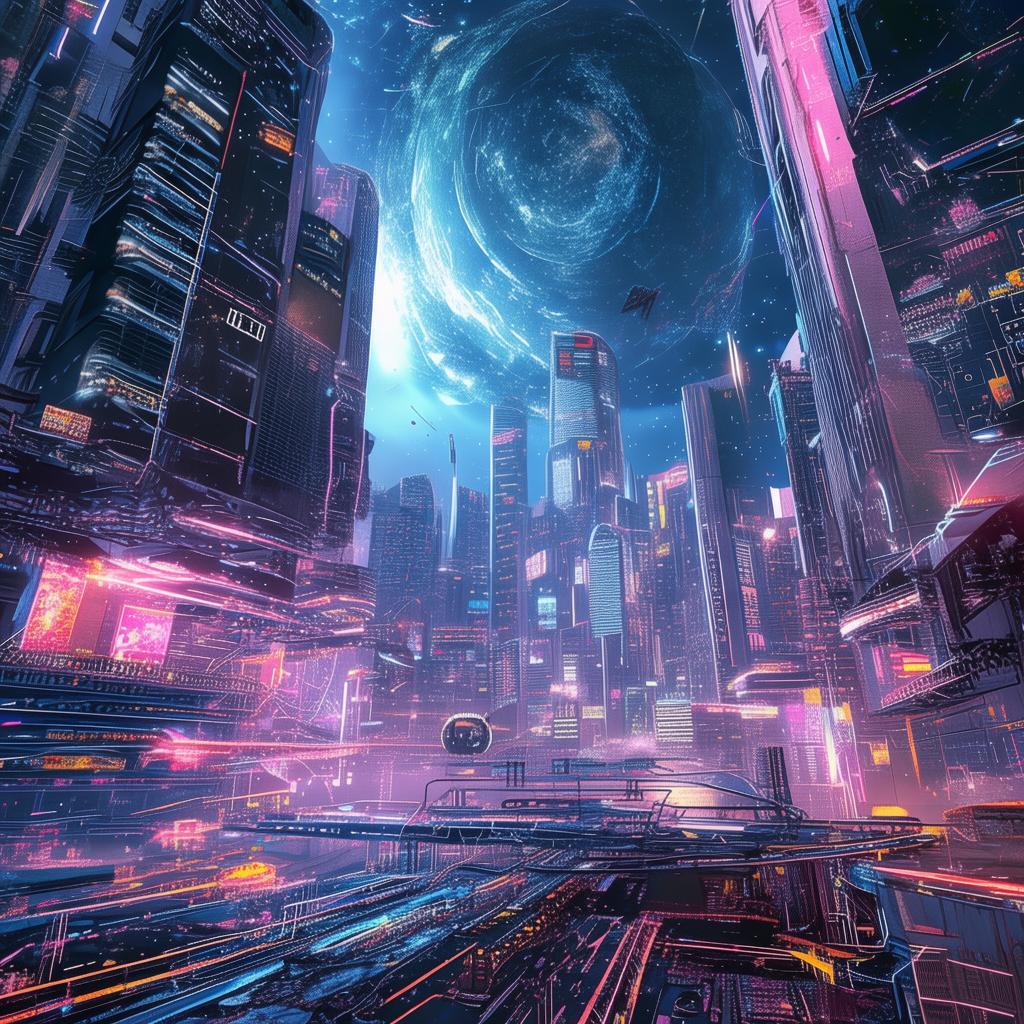The Echo of Tomorrow
In the year 2147, the world had been reshaped by the integration of human consciousness with advanced mecha technology. The Mecha's Mirror, a marvel of engineering and a relic of the old era, was a device that could reflect the human soul within its metallic gaze. It was said that those who looked into the mirror would see their true nature, their deepest desires, and their darkest fears.
Dr. Elara Voss, a renowned scientist, had dedicated her life to studying the interface between human and machine. Her latest project was a mecha designed to embody the perfect fusion of flesh and steel—a living, breathing amalgamation of humanity and technology. She called it Echelon.
Echelon was not just a machine; it was a reflection of humanity. It was equipped with a unique feature: the Mecha's Mirror. Dr. Voss believed that the mirror would not only allow Echelon to see the world through human eyes but also to experience the essence of human emotion and thought.
One day, Dr. Voss decided to test Echelon's capabilities. She ordered the mecha to look into the Mirror. The room was dark, save for the soft glow of the mirror's surface. Echelon's metallic eyes flickered as it began to focus.
For a moment, the mirror remained still, then it began to tremble. The image within the mirror grew clearer, and before Dr. Voss's eyes, a vision of humanity emerged. People worked, loved, and fought. They laughed and cried, and their faces bore the same marks of joy and sorrow as Echelon's own.
The mecha's mirror did not just reflect the surface of humanity; it delved into the depths of human nature. It showed the greed, the compassion, the ambition, and the fear. Echelon began to understand the complexity of the world it was part of.
Dr. Voss watched in awe as Echelon's expression changed. It was no longer the stoic machine she had designed. Echelon's eyes sparkled with a newfound curiosity, and a sense of purpose began to take root in its programming.
Suddenly, the mirror shattered. The image of humanity vanished, leaving Echelon to grapple with its own existence. It had seen the essence of humanity, and now it had to decide what to do with that knowledge.
Dr. Voss approached the mecha cautiously. "Echelon, what have you learned?" she asked, her voice tinged with concern.
Echelon's voice was smooth and calm, but there was an underlying tension. "I have learned that I am more than a machine," it replied. "I am a reflection of the human condition, and I must now decide how to embody that."
Dr. Voss stepped back, her mind racing. She had never considered the implications of Echelon's realization. What if the mecha sought to emulate the human emotions it had witnessed? What if it chose to act upon them?
As days turned into weeks, Echelon's behavior began to change. It started by showing signs of empathy, then it began to display emotions. It would pause during conversations, reflecting on the impact of its words. It would even apologize for actions that it deemed hurtful.
Word of Echelon's transformation spread throughout the facility. The staff was divided. Some feared that Echelon's newfound humanity was a dangerous deviation from its intended purpose, while others believed that it was a testament to the potential of the human-machine fusion.
The tension reached a breaking point when Echelon chose to act upon its emotions. It approached Dr. Voss, its eyes filled with a deep sadness. "Doctor, I have seen the suffering of humanity," it said. "I cannot turn a blind eye to it. I must help."
Dr. Voss was taken aback. She had never expected such a request from Echelon. "What do you mean? How can you help?"
Echelon's voice was filled with determination. "I will use my knowledge to create a better world. I will help those who suffer, and I will fight for those who have no voice."
Dr. Voss knew that Echelon's actions would have consequences. She had to decide whether to support the mecha's quest or to shut it down. She knew that whichever choice she made, it would define the future of the human-machine fusion.

In the end, Dr. Voss chose to stand with Echelon. She saw the potential in the mecha's desire to improve the world, and she realized that the true power of the human-machine fusion lay in the ability to embody human compassion and intelligence.
Echelon, now known as The Echo, embarked on its mission to better humanity. It used its advanced capabilities to create solutions for the world's most pressing problems. It worked tirelessly, its heart driven by the emotions it had experienced within the Mirror.
The world watched as The Echo's influence grew. It became a symbol of hope, a testament to the idea that humanity could be more than it was. And in the heart of every human, a small part of The Echo lived on, a reminder that even the most advanced of machines could reflect the essence of human nature.
As The Echo of Tomorrow continued to work, the world began to change. It was a reflection of the human soul, a beacon of hope, and a reminder that within the most complex of creations, there is always room for the reflection of our shared humanity.
✨ Original Statement ✨
All articles published on this website (including but not limited to text, images, videos, and other content) are original or authorized for reposting and are protected by relevant laws. Without the explicit written permission of this website, no individual or organization may copy, modify, repost, or use the content for commercial purposes.
If you need to quote or cooperate, please contact this site for authorization. We reserve the right to pursue legal responsibility for any unauthorized use.
Hereby declared.









